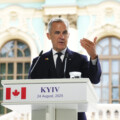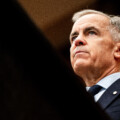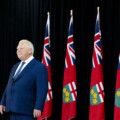TORONTO — On October 27, Prime Minister Justin Trudeau announced that the government would, among other things, implement a three-year pause to the federal carbon tax on heating oil in all jurisdictions where the federal fuel charge is in effect.
The announcement has generated a lot of policy and political debate because its been characterized as political special treatment for Atlantic Canadians where home heating oil is disproportionately used and a long-run threat to the carbon tax’s viability since it will invariably lead to similar demands for exemptions. The following five tweets from leading policy experts and politicians reflect the these different perspectives.
Blake Shaffer, an associate professor in the department of economics at the University of Calgary, described this as a “cynical political move” to protect the Liberal Party’s support in Atlantic Canada where polls indicate the prime minister and his party have strong disapproval ratings.
Over the weekend, federal Minister for Rural Economic Development Gudie Hutchings told CTV Question Period that other Canadians—particularly in Western Canada—may have more success securing a similar exemption on their heating costs if they had Liberal members of Parliament.
Alberta Premier Danielle Smith criticized the federal government’s decision as unfair to Albertans and Saskatchewanians who will not benefit from the exemption on their natural gas heating.
Pierre Poilievre, leader of the federal Conservative Party, similarly criticized the asymmetric treatment of the government’s exemption and called on the prime minister to extend to it to natural gas, propane, and other heating.
Trevor Tombe, professor of economics at the University of Calgary and Hub contributor, described the growing demands for exemptions similar to the one announced by Ottawa as evidence that “the carbon tax is now effectively dead.”
At this point, the federal government has indicated that it will not consider other exemptions for the carbon tax. It is too early to judge whether that position will be sustainable in light of the challenges set out by Shaffer, Tombe, and others.

If you enjoy Hub podcasts (including bi-weekly episodes with David Frum and Amanda Lang), be sure to check out more insightful commentary on The Hub’s YouTube page:
Recommended for You

The Weekly Wrap: Is the Poilievre comeback real?

Stephen Staley: The culture war comes for Cracker Barrel

Rudyard Griffiths and Sean Speer: Canada’s bad GDP numbers come with big risks for the Carney government

‘It’s just ugly for Prime Minister Carney’: The Roundtable reacts to Canada’s disappointing new economic numbers



